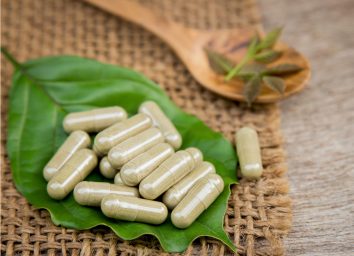The #1 Worst Drinking Habit for Your Liver, Says Science

Your liver health is crucial to your overall health and vitality, especially because the liver serves over 500 important functions throughout your body, such as removing waste and toxins from the body.
When it comes to caring for your liver health, you can do things like maintaining a healthy diet, talking with your doctor about medications that may impact your liver, and limiting your alcohol consumption.
In fact, research suggests that one of the worst drinking habits you can have for your liver is consuming too much alcohol on a daily basis.
But before we get into how alcohol can affect your liver, it's important to look at how much is too much.
What is a moderate amount of alcohol?

As a standard guideline, the CDC considers moderate drinking as one drink or less a day for women, and two drinks or less a day for men.
One drink is the equivalent of 12 ounces of beer, 5 ounces of wine, and 1.5 ounces of liquor.
And while the CDC recommends this amount as "moderate consumption," they emphasize the fact that drinking less alcohol is always going to be safer than drinking more.
How much alcohol does it take to affect your liver?

Even moderate alcohol consumption can affect your liver because it's the most important organ for processing the alcohol you drink. But the CDC warns that heavy drinking—which is more than 8 drinks per week for women and 15 drinks per week for men—can lead to severe liver damage, such as liver cirrhosis or even liver cancer.
According to a study from BMJ, drinking 30 grams of alcohol per day significantly increased participants' risk of developing liver cirrhosis, with that risk increasing even more if more alcohol was consumed.
Interestingly enough, the study also noted that drinking alcohol without a meal increased someone's risk of liver damage, as did being over the age of 50.
The bottom line

Alcohol is processed in your liver, so too much alcohol consumption over time can overwork your liver, create a build-up of scar tissue, and cause lasting damage.
If you're concerned about your alcohol consumption and feel it may be affecting your liver health, you may want to talk with a doctor about possible solutions.








